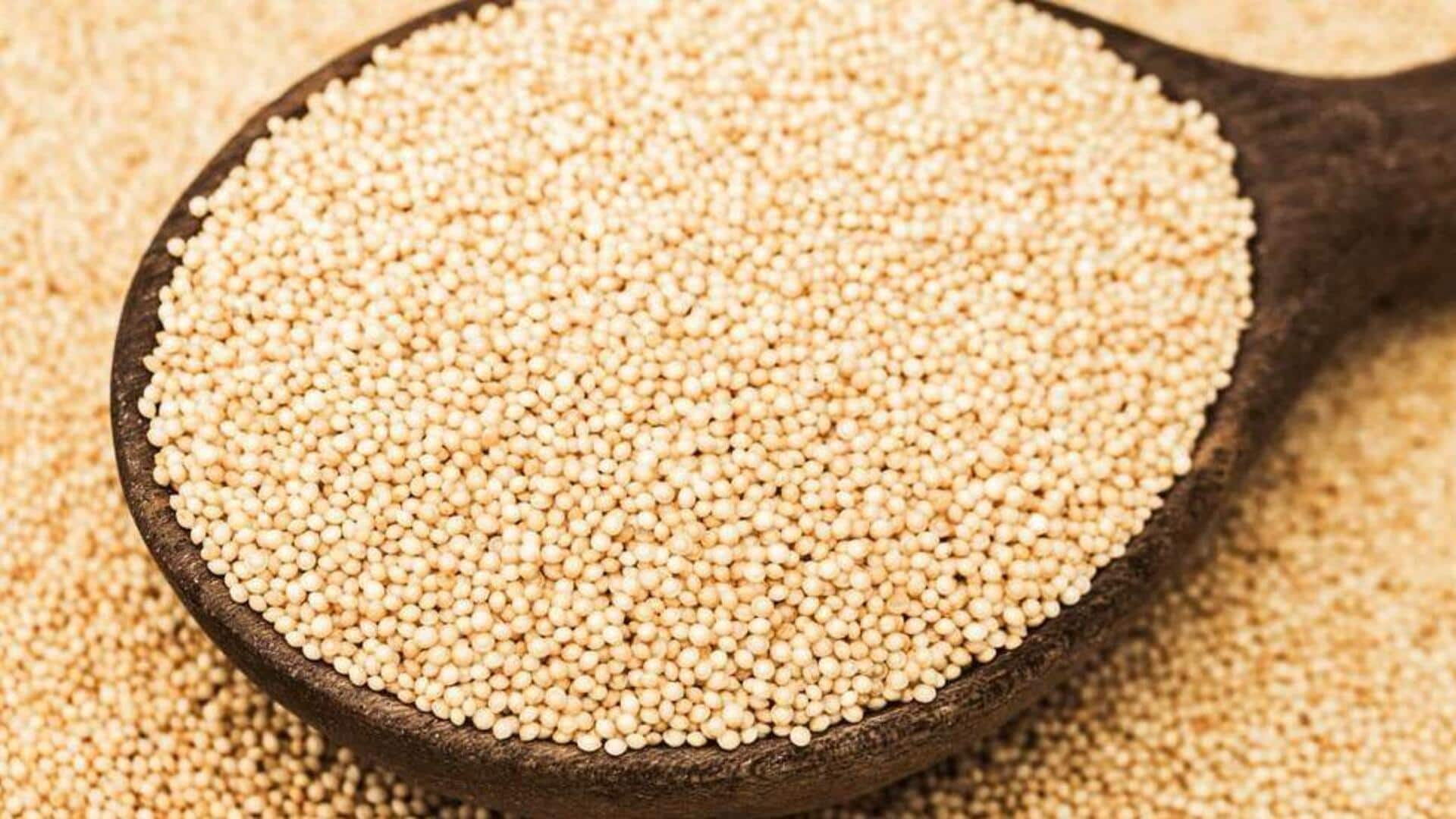
The quiet quinoa cousin: Amaranth's nutrient density
What's the story
Amaranth, the underappreciated sibling of trendy quinoa, is a nutritional dynamo waiting to be discovered. This "ancient grain" (technically a seed, just like quinoa) boasts a history spanning 8,000+ years. It was a dietary cornerstone for the pre-Columbian Aztecs. Packed with fiber, protein, and vital micronutrients, this gluten-free wonder deserves a spot in your pantry.
Protein content
A protein powerhouse
Amaranth is a protein powerhouse. At 14% protein by weight, it outclasses most other grains. This high protein content makes amaranth a great option for vegetarians seeking to increase their protein intake. Notably, the protein in amaranth is complete, meaning it contains all nine essential amino acids. These are vital for body function but can't be produced by the body.
Vitamins and minerals
Loaded with micronutrients
Amaranth is not only high in macronutrients like protein but also loaded with essential vitamins and minerals. It's an excellent source of magnesium, iron, phosphorus, and manganese. A single cup of cooked amaranth offers 40% of the daily recommended intake of magnesium, a crucial nutrient involved in over 300 enzymatic reactions within the body, including DNA synthesis and muscle contraction.
Gluten-free
Gluten-free grain alternative
People with celiac disease or gluten sensitivity often struggle to find healthy alternatives to wheat-based products. Enter amaranth, a naturally gluten-free option. Its versatility allows it to be used in everything from a warm morning porridge to a savory side at dinner, removing the worry of gluten contamination. This adaptability means amaranth can easily fit into your daily meal rotation.
Antioxidants
An antioxidant-rich seed
Amaranth is packed with antioxidants - these are substances that help combat harmful free radicals in your body, thereby lowering inflammation, and shielding you from diseases. It boasts a high concentration of phenolic acids, which are powerful antioxidants. Incorporating amaranth into your meals can safeguard your cells from harm and lower your chances of chronic illnesses like heart disease.
Cooking
Easy cooking tips
To cook amaranth, wash the seeds and combine one part amaranth with three parts water. Bring it to a boil, then let it simmer for 20 minutes until the liquid is absorbed. For a healthy snack, you can pop them like popcorn or throw some into your soups to thicken them up without changing the flavor.